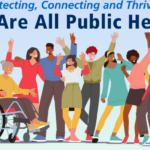TFAH Calls for Additional Policies, Research, Funding and Public Health Capacity to Prepare for Zika and Other Emerging Outbreaks
February 11, 2016
Washington, D.C., February 11, 2016 – Trust for America’s Health (TFAH) calls on U.S. policymakers to take additional steps to respond to the Zika virus in the Americas and its potential continued spread in the United States. The Centers for Disease Control and Prevention (CDC) has warned that there will likely be more cases within the U.S., but at this time they do not believe there will be the kind of widespread outbreaks here as there have been in South America.
President Obama has requested $1.8 billion in emergency funding in his Fiscal Year 2017 budget to prepare for and respond to the Zika virus. The Senate Appropriations Subcommittee on Labor, Health and Human Services, Education and Related Agencies is holding a hearing today to review the request. TFAH supports the request for emergency funding, but emphasizes the need for consistent support for the nation’s public health infrastructure.
“The reports that the Zika virus may be related to a steep increase in birth defects in infants born to mothers who were infected during pregnancy in areas of the Americas are frightening,” said Richard Hamburg, Interim President and CEO of TFAH. “While scientists and public health officials are still learning about the virus and the threat it poses to the public’s health, what we do know is that Zika, Ebola, MERS-CoV and other public health threats require constant vigilance. We simply can’t jump from one supplemental funding vehicle to another as a substitute for true public health capacity. There is a lot more the country could be doing to be better prepared for the range of threats we face.”
Although not a new virus, 2015 marked the first widespread transmission of the Zika virus in the Americas. The virus is spread primarily by mosquitoes and usually causes only mild illness or no symptoms, but experts are investigating how it is linked to the rise in birth defects in infants born to mothers who were infected during pregnancy and to cases of Guillaun-Barré syndrome. In January 2016, CDC warned women who are pregnant or trying to become pregnant to avoid travel to regions and countries with widespread Zika transmission or to prevent being bitten by mosquitoes there. The World Health Organization (WHO) has declared the Zika virus and its suspected link to birth defects a public health emergency of international concern.
In response to the Zika virus and other emerging health threats, TFAH recommends the need for:
- Policies and communications driven by best available science: When a situation is uncertain and evolving, accompanied by a great deal of fear in the community, policy and communications decisions must be based on the best available science. In recent outbreaks, some policies, such as quarantine decisions, may have been driven by fear or politics. Policymakers should work with public health on risk communications and policies that acknowledge concern among the public and ensure accurate, appropriate information.
- Support for research and development of medical countermeasures: There is an urgent need for diagnostics, treatments and vaccines for Zika and other emerging threats. Congress should provide adequate funds to the Biomedical Advanced Research and Development Authority (BARDA), the Strategic National Stockpile and Project BioShield to accelerate development, purchase and stockpiling of medical countermeasures for public health emergencies.
- Public health capacity to detect and contain the virus in the U.S.: Federal, state and local health departments must receive a sufficient, stable annual level of funding to meet and maintain a core set of capabilities to respond to emerging and ongoing threats. Modern laboratory, epidemiological and surveillance capacity, as well as the ability to distribute medical countermeasures if needed, are key to containing an infectious disease threat. The Public Health Emergency Preparedness cooperative agreement is an important source of funding for the domestic preparedness infrastructure.
- Enhanced health system preparedness for infectious diseases: We must build all-hazards preparedness and infection control protocols into the healthcare delivery system, including coordination between healthcare facilities and with public health and enabling providers to screen and respond to potential cases. The Hospital Preparedness Program provides vital support to the healthcare preparedness system, but funding has dwindled in recent years.
- Strengthening the global health infrastructure: Infectious disease control strategies rely on the ability to detect and contain diseases as quickly as possible – which means working with other countries and across borders to contain threats globally. The United States must provide ongoing support for the Global Health Security Agenda and activities such as CDC’s Global Disease Detection program, which build the capacity and coordination needed to identify and contain emerging infectious diseases around the world.
Trust for America’s Health is a non-profit, non-partisan organization dedicated to saving lives by protecting the health of every community and working to make disease prevention a national priority. www.healthyamericans.org
###
